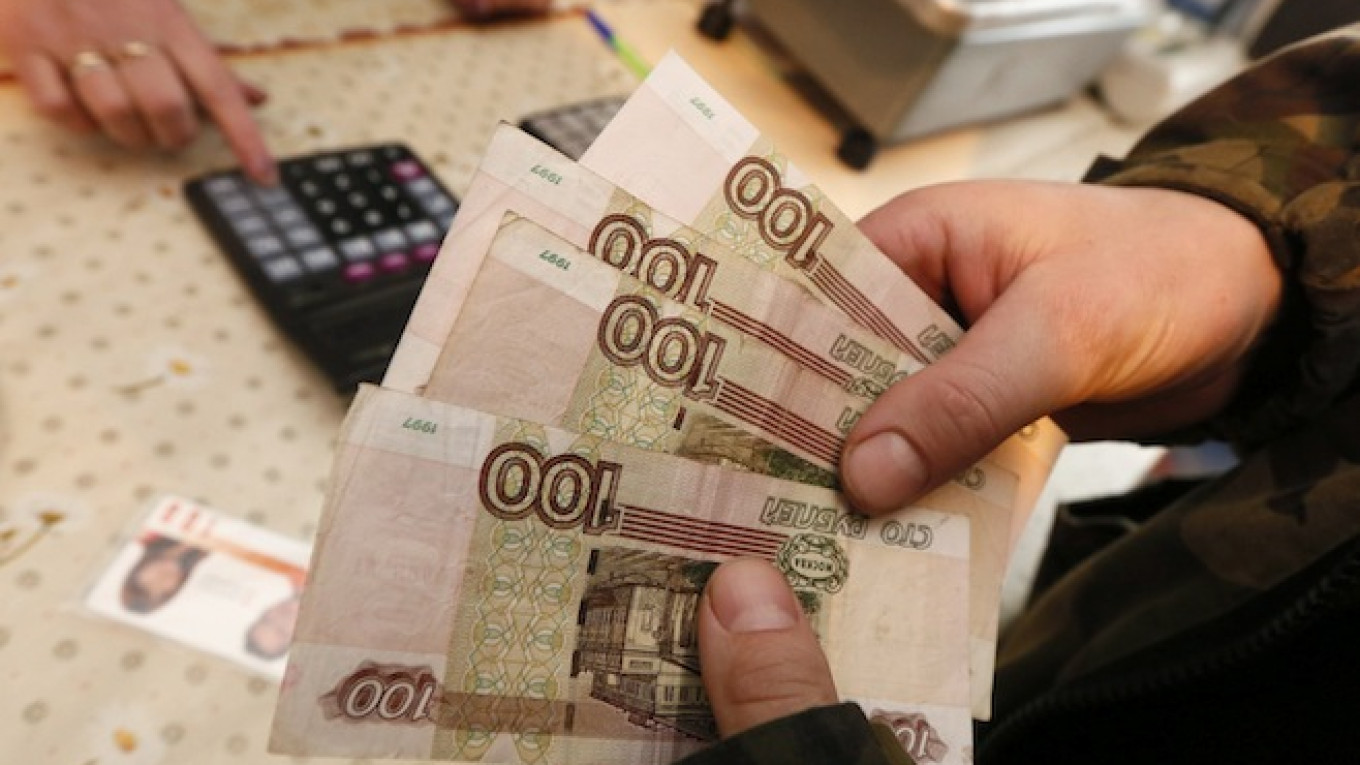Falling oil prices drove Russian assets lower on Thursday, but companies selling foreign currency for tax purposes curbed losses in the ruble.
At 8:20 p.m., the ruble was around 0.5 percent weaker against the dollar at 61.8 and lost 0.3 percent to trade at 70.4 versus the euro.
Shares fell more, and yields on sovereign eurobonds ticked higher on long-dated issues.
"The short-term prospects for the ruble will be determined by the dynamics of oil and the progress [or lack of it] over the Ukraine question," Dmitry Polevoy, an analyst at ING Bank in Moscow, said in a note.
Brent crude oil fell over 2 percent on Thursday, moving below $59 a barrel, on new worries of oversupply. Oil is one of Russia's chief exports and hence an important influence on all Russian assets.
On Ukraine, investors were hoping for a full cease-fire after the Ukrainian army pulled out of Debaltseve, an important railway hub that has seen the fiercest fighting between pro-Russian rebels and government forces in recent weeks.
Fighting was still raging on Thursday, despite European efforts to resurrect a truce agreed in the Belarussian capital, Minsk.
Analysts say market participants are looking beyond the fighting to the broader issue of whether Russia and the West can resolve their differences over Ukraine, making further economic sanctions less likely.
Meanwhile, a pickup in foreign-currency sales before the end-of-month tax period underpinned the ruble.
"We think exporters could have increased the hard-currency selling offer ahead of taxes next week, because in February export was mostly on the sidelines in the FX market," Maxim Korovin, a forex analyst at VTB Capital, said in a note.
Russian exporters convert some of their foreign-currency earnings to pay ruble-denominated taxes to the state budget each month. That support has increased since the government began monitoring exporters' forex sales to ease pressure on the ruble, which collapsed in December.
Moscow-listed shares dropped on Thursday, following gains in the previous session and reflecting moves in the ruble.
The dollar-denominated RTS index was down 2.5 percent to 906 points. Its ruble-based peer MICEX fell 0.64 percent to 1,268 points.
Yields on Russian dollar Eurobonds maturing in 2042 and 2043 rose by 14 and 5 basis points, respectively. The yield on the benchmark 2030 dollar bond was little changed.
A Message from The Moscow Times:
Dear readers,
We are facing unprecedented challenges. Russia's Prosecutor General's Office has designated The Moscow Times as an "undesirable" organization, criminalizing our work and putting our staff at risk of prosecution. This follows our earlier unjust labeling as a "foreign agent."
These actions are direct attempts to silence independent journalism in Russia. The authorities claim our work "discredits the decisions of the Russian leadership." We see things differently: we strive to provide accurate, unbiased reporting on Russia.
We, the journalists of The Moscow Times, refuse to be silenced. But to continue our work, we need your help.
Your support, no matter how small, makes a world of difference. If you can, please support us monthly starting from just $2. It's quick to set up, and every contribution makes a significant impact.
By supporting The Moscow Times, you're defending open, independent journalism in the face of repression. Thank you for standing with us.
Remind me later.


